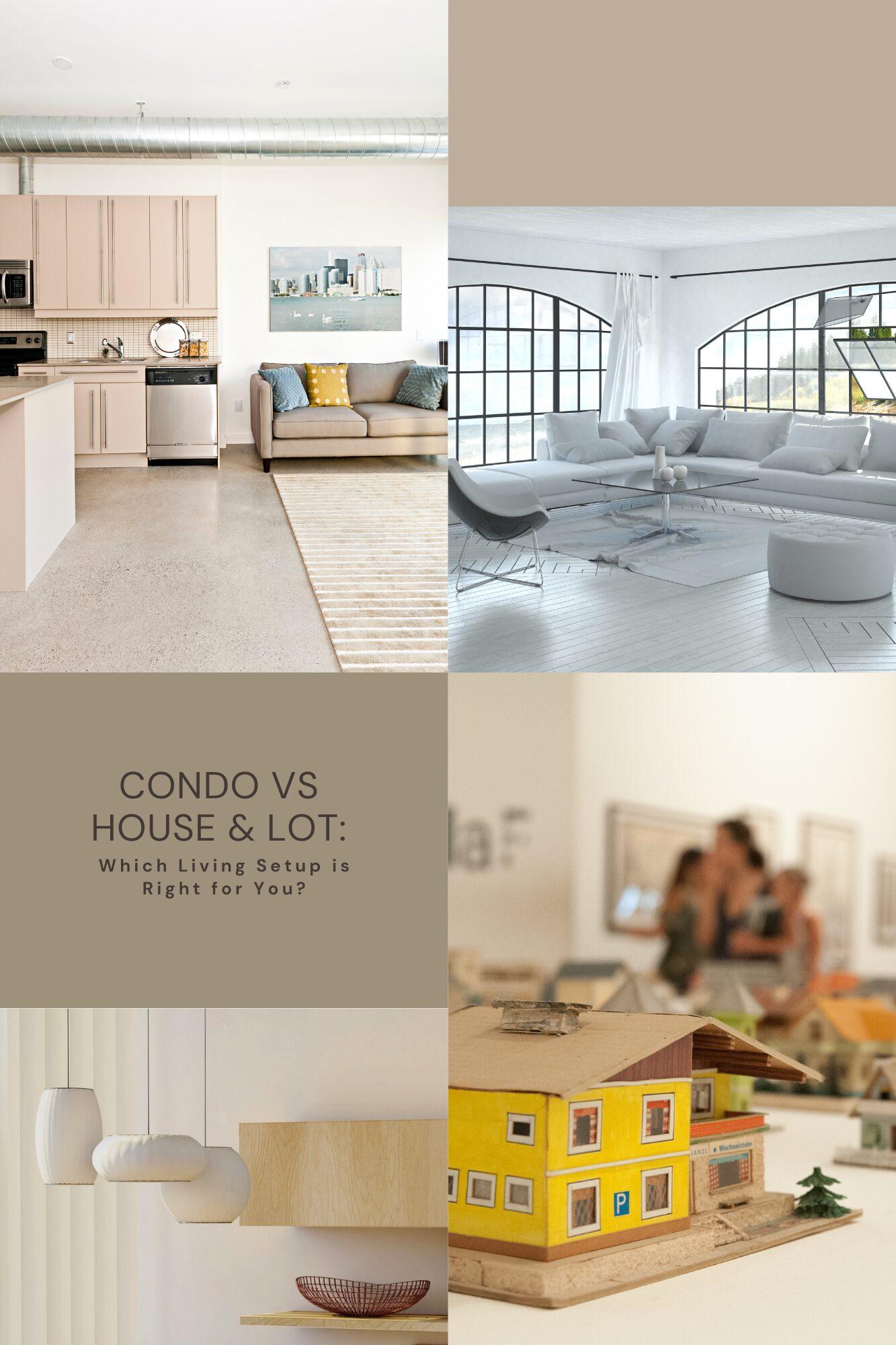One of the biggest financial and lifestyle decisions anyone will face is purchasing their dream home. For some, the struggle is real when deciding which to purchase between a condominium unit or a standalone house and lot. Both options have their advantages and drawbacks, and the ideal choice often comes down to specific needs, preferences, and budget. Here’s a look at some of the key factors to weigh.
UPFRONT COSTS
In most Philippine cities, condominiums tend to have significantly lower upfront costs compared to a singledetached house and lot of comparable size and quality. Condo units are inherently smaller, plus you don’t have to purchase land, making the initial investment lower.
However, condo association fees and other monthly dues can add considerable recurring expenses that cut into longterm affordability. Single-family homes don’t have association fees, though property taxes and maintenance still apply.
MAINTENANCE AND SECURITY
One major advantage of condominium living is very little maintenance. Buildings have staff for security, cleaning common areas, landscaping, etc. You only need to maintain the interior of your unit. With a house, you’re fully responsible for all interior and exterior upkeep and repairs. On the flip side, condo dwellers have minimal control over building operations and policies set by the association. In a house, you can make any changes or renovations you wish.
SPACE AND PRIVACY
Condo units are famous for their lack of living space compared to houses of a similar market price. You sacrifice significant indoor square footage as well as outdoor space and privacy that come with a detached house and lot. However, condos maximize efficient use of limited space through smart design. AMENITIES AND CONVENIENCE Condominiums in the Philippines often have attractive amenity offerings like swimming pools, gyms, function rooms, playgrounds, and more included through association fees. They’re also situated in accessible urban areas near business districts, schools, hospitals, and shopping.
Houses are closer to traditional neighborhood life, but lack shared amenities and often require driving farther for daily needs depending on location. You may need to purchase additional club memberships for similar recreation amenities.
POTENTIAL FOR APPRECIATION
Historically, house and lot properties have seen higher appreciation over the long term in the Philippine real estate market. However, condo units in prime areas can potentially outpace that growth over shorter periods. Both require researching the specific location and developments planned nearby.
LIFESTYLE PRIORITIES
At the end of the day, carefully consider your lifestyle priorities. Condos offer low-maintenance metropolitan living, while houses provide personal space and privacy plus a sense of community. The decision comes down to which setup best suits your season of life and personal
vision of home. There are plenty of great reasons why families choose either condos or houses in the Philippines. Weigh the financial
realities against your current needs and future plans to decide which is the smarter investment and living situation for you.
For many Filipinos, owning a home is the ultimate dream. But once the finances are in order, one of the biggest decisions is whether to purchase a condominium unit or go for a house and lot. Both options have their merits and downsides depending on your specific needs and lifestyle. Here’s a look at the key factors to weigh between condo living and a single-detached home.
AFFORDABILITY AND COSTS
In most major Philippine cities, condominiums represent a much lower entry point in terms of upfront purchase costs. Condo units are typically priced cheaper than comparable singledetached houses since you own airspace versus land. However, condos come with recurring association fees for maintenance and amenities that can add up over time. While house and lot packages require bigger downpayments, there are no monthly association charges. However, you’re responsible for all maintenance, repairs, and property taxes yourself.
SPACE AND PRIVACY
One of the biggest cons of condo living is the limited living space compared to a house of a similar price point. Cond0 units are designed for efficient use of tight quarters, with little to no outdoor space. Houses offer significantly more interior square footage plus a private yard.
However, condos maximize amenities like shared pools and green spaces to offset the lack of private outdoor areas. Those seeking utmost privacy may prefer the detached nature of a house and lot.
MAINTENANCE AND SECURITY
Condo living is extremely low maintenance. Owners are free from landscaping, security, and other exterior upkeep since these expenses are covered by association fees. Meanwhile, homeowners must handle all repairs and maintenance for their entire property themselves. On the other hand, condos bring strict rules set by associations regarding noise, guests, renovations, etc. Houses provide full freedom over your personal space.
AMENITIES AND LOCATION
Most Philippine condos come equipped with great amenities like swimming pools, gyms, play areas, and function rooms included through dues. They’re also built in central areas near offices, malls, hospitals, and recreation for urban conveniences. Stand-alone houses are situated in more traditional neighborhood settings, often requiring driving to reach everyday needs. Many gated subdivisions provide recreation amenities for an added cost.
APPRECIATION POTENTIAL
Historically, house and lot properties have tended to appreciate better over longer periods, as land scarcity drives up values. But condos in central business districts sometimes outpace that growth over shorter windows based on market hotness.
LIFESTYLE PRIORITIES
At the end of the day, the condo vs house decision comes down to analyzing priorities like space, privacy, security, amenities, location, and longterm costs based on your specific life stage and lifestyle goals. Weigh the pros and cons carefully before investing in your dream home.
Both condos and houses can make great residential options in the Philippines. It’s crucial to realistically assess your budget, living needs, and anticipated future plans when evaluating which property type is the wiser long-term investment






